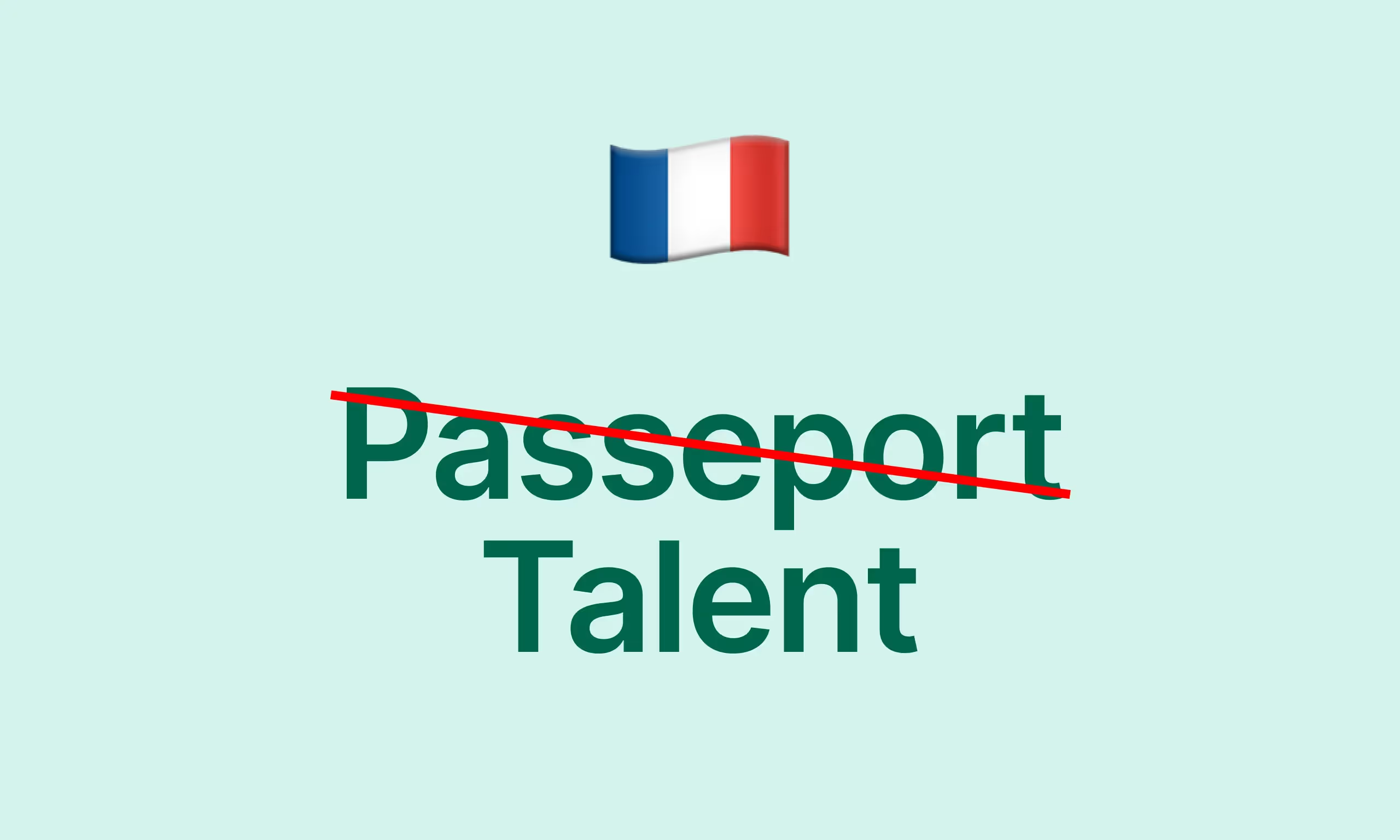

In June 2025, France implemented a series of changes affecting most professional residence permits—first and foremost, the former Passeport Talent program. It’s now simply called Talent and operates under updated rules.
Important: the program hasn’t been cancelled, despite what alarming headlines in Telegram chats might suggest. Instead, it has been renamed, streamlined, and given clearer eligibility criteria. The grounds for applying remain in place; they’re just organized differently and subject to slightly stricter—but also somewhat faster—procedures (at least, that’s the intent).
This article is for those seriously considering a move to France: highly skilled professionals, entrepreneurs, startup founders, and creatives. We’ll explain what’s changed—and more importantly, what you should do now to take advantage of the current opportunities before new restrictions inevitably arrive.
These changes weren’t just a whim of French bureaucracy. They’re part of a broader European policy: in 2021, the European Union adopted a revised directive on labor migration for qualified professionals, and France is now aligning its national legislation with these standards.
There are internal drivers too. France faces a shortage of skilled professionals in healthcare, IT, science, and engineering. At the same time, the immigration system is under pressure, with a growing number of applicants arriving without clear plans or institutional backing.
The updated system is designed to:
France remains open to professionals—but now under more structured and predictable rules.
The first thing you’ll notice is the disappearance of the word passport. The program is no longer called Passeport Talent, but simply Talent. The reason is straightforward: the old name was misleading. Many misunderstood it as a passport or travel document, leading to false associations with citizenship or visa-free entry. In reality, it has always been a residence permit. The new name more accurately reflects its purpose: a residence pathway for those with the expertise, experience, or projects France needs.
The changes go beyond just the name—the very structure of the program has been overhauled. Previously, Passeport Talent included a dozen subcategories: separate tracks for startup founders, employees of innovative companies, investors, transferred staff, and more. Now, the Talent program is organized into eight main categories. Each one corresponds to a specific professional track—from employment to entrepreneurship to creative fields.
Here’s what the new structure looks like:
Now, every profile has a clear category, defined criteria, and standardized processing timelines. The system is more coherent and easier to navigate.
Previously scattered across different articles and names, several visa categories have now been grouped into clearer blocks.
For entrepreneurs and startup founders, there is now a single category: Porteur de projet. It covers three options: launching a business (you now need to show that you’re investing at least €30,000 into your future French company), pursuing an innovative project with government approval, or making a direct investment of €300,000 in a business you own and manage. The existing rules for startups backed by accelerator support letters remain unchanged.
For employees, all professional work categories have been merged into one: Salarié qualifié. To qualify, you’ll need a Master’s degree, a job contract of at least 3 months, and a salary of at least €43,243 per year (about 1.5 times the national average). For the EU Blue Card, the threshold is even higher — from €53,836 per year.
The good news: processing times have been reduced. For Salarié qualifié applications, decisions are supposed to be issued within 30 days. If authorities don’t respond in time, the application is automatically approved. That’s a major improvement over the long wait times of the past.
This has become one of the most debated topics after the reform. As of July 2025, there are no official language requirements. Neither entrepreneurs nor startup founders nor salaried professionals are required to speak French when applying.
However, starting January 1, 2026, new language rules are expected. It’s still unclear who they will apply to, what level will be required, and how it will be tested.
What does this mean in practice? Right now is a great window of opportunity. Anyone who applies before the new rules kick in will be processed under the current regulations. This gives you time to start your application now and work on your French gradually — once you’re already in France.
Since June 2025, the French residence permit system includes a dedicated category: Talent – Professions médicales et de la pharmacie. It was introduced in response to the acute shortage of doctors, pharmacists, dentists, and obstetricians-gynecologists in France, especially outside major cities.
On the one hand, this is a new opportunity for qualified professionals from outside the EU. The residence card is issued for up to 4 years, does not require a separate work permit, and a signed contract with a hospital, pharmacy, or private clinic is sufficient to apply.
But there are hurdles. To qualify, you must:
This creates a paradox: France urgently needs specialists, but the requirements remain high — especially for those who don’t speak French well enough yet.
Despite the reform, the key benefits of the Talent program remain:
You can apply from a third country, not just your country of citizenship. Applications are accepted both in your home country and in the country where you currently reside.
Despite the buzz in chats and on social media, the idea of a sweeping crackdown is a myth. The formalized requirement to invest €30,000 applies only to those applying under the business creation track. For startups with support letters from accelerators, nothing has changed. There are no “monthly inspections by prefectures” — this rumor is not supported by any official documents or real-world practice. There are also no new rules regarding turnover or employee numbers for your project.
What has changed: the rules are now clearer, the structure more straightforward, and processing times shorter.
If you're a qualified professional, entrepreneur, or startup founder considering a move, now is the time to apply — before French language requirements become a formal barrier. France remains one of the few countries in Europe where you can get a 4-year residence permit with real prospects of citizenship — especially if you bring talent, a viable project, and strong motivation.